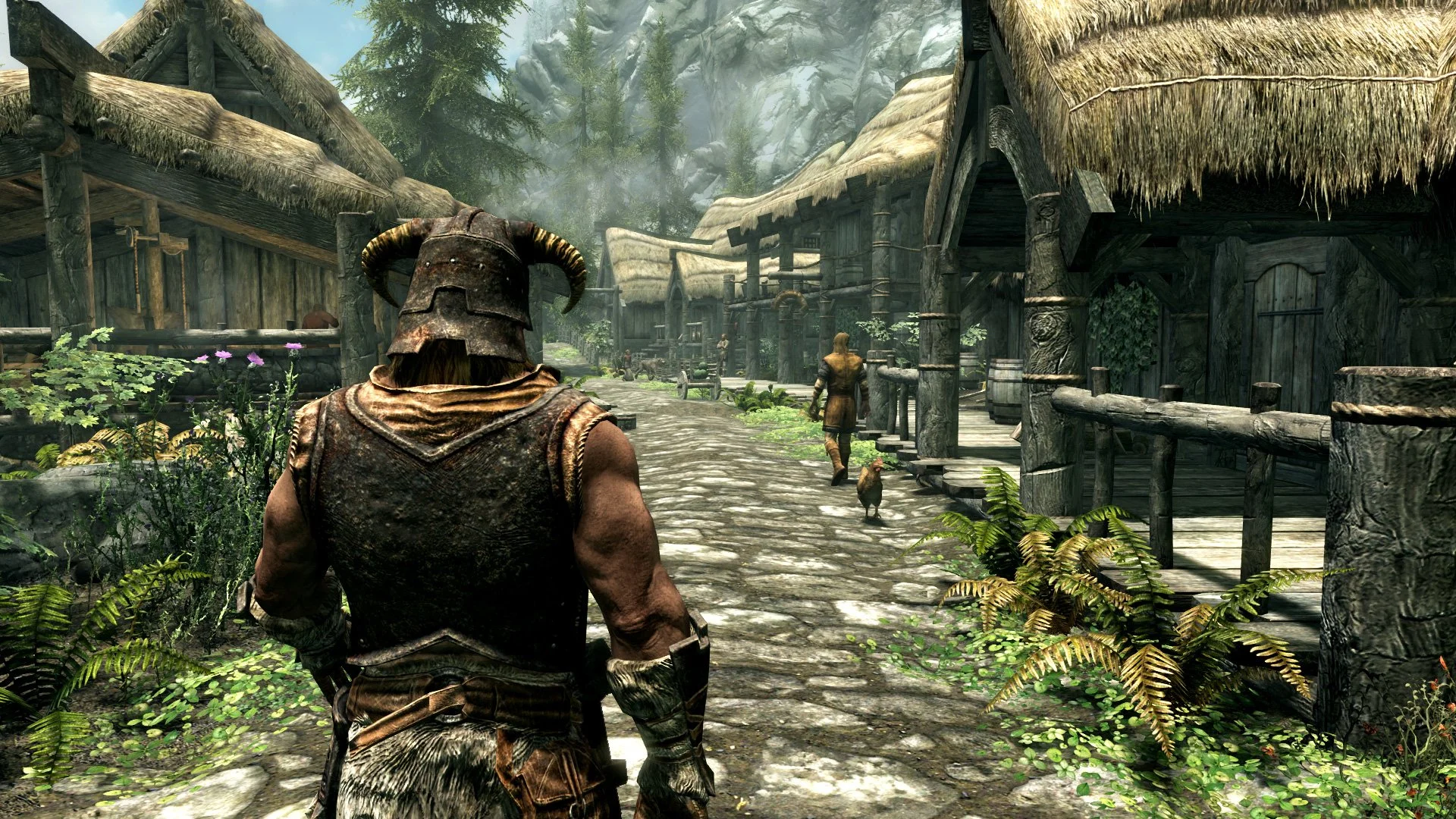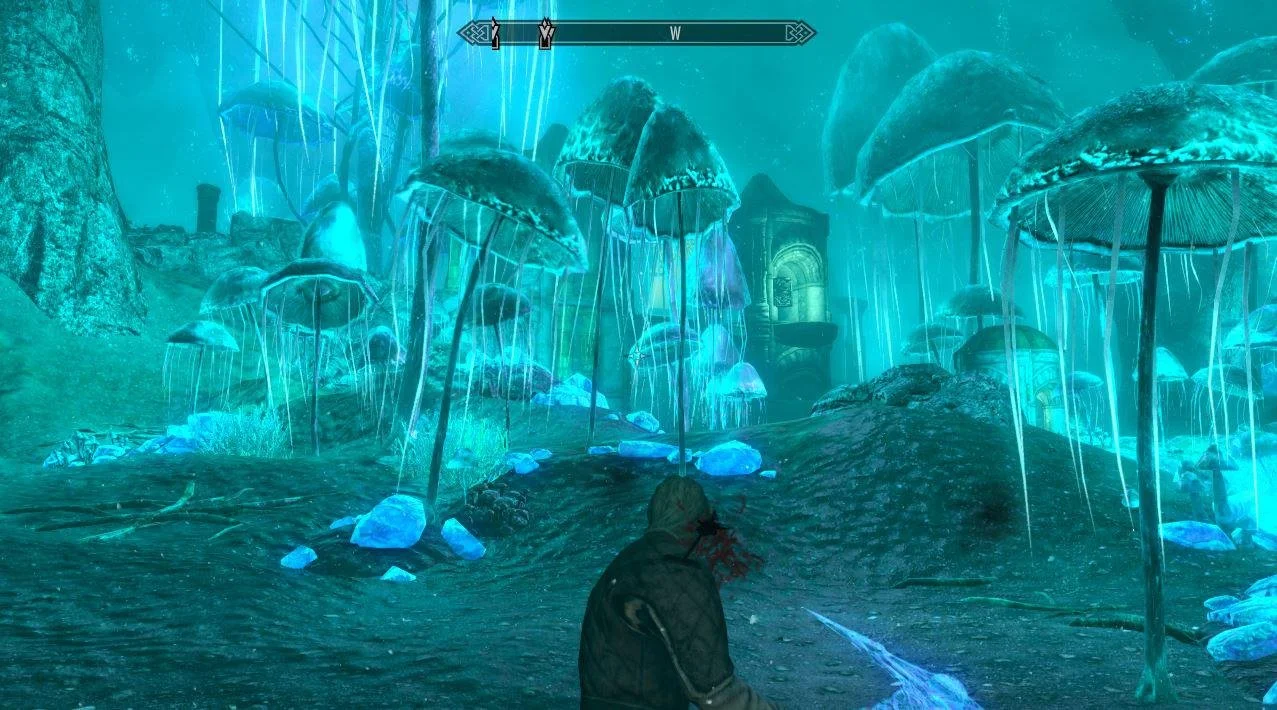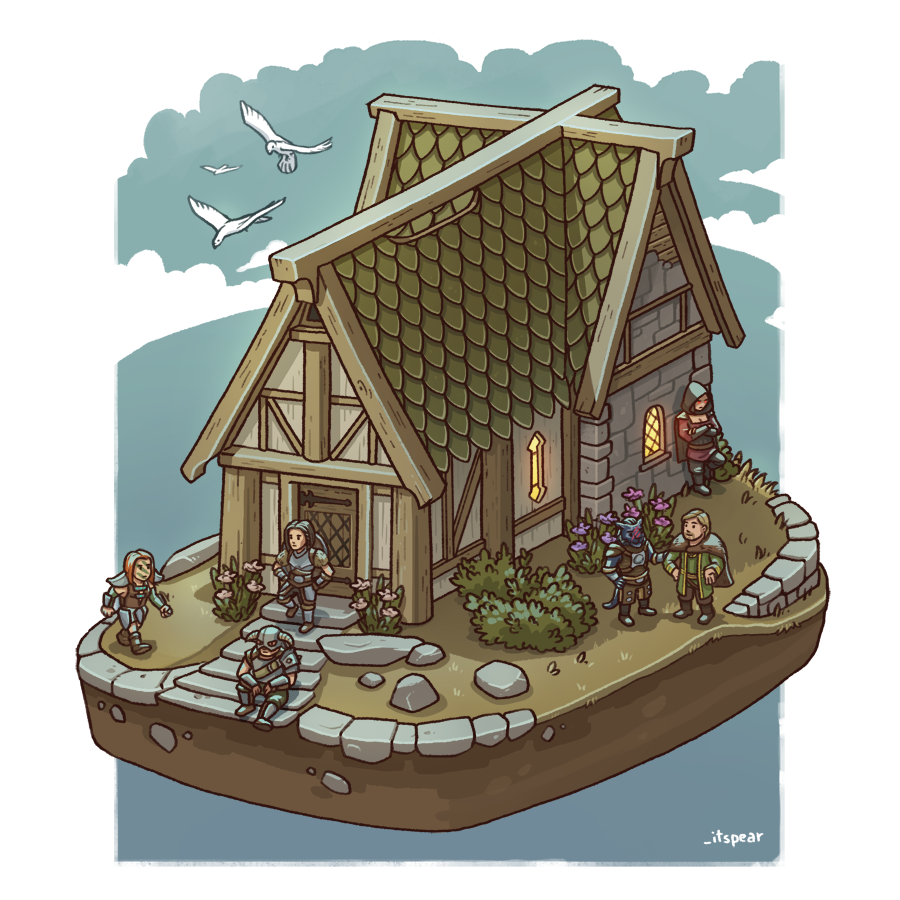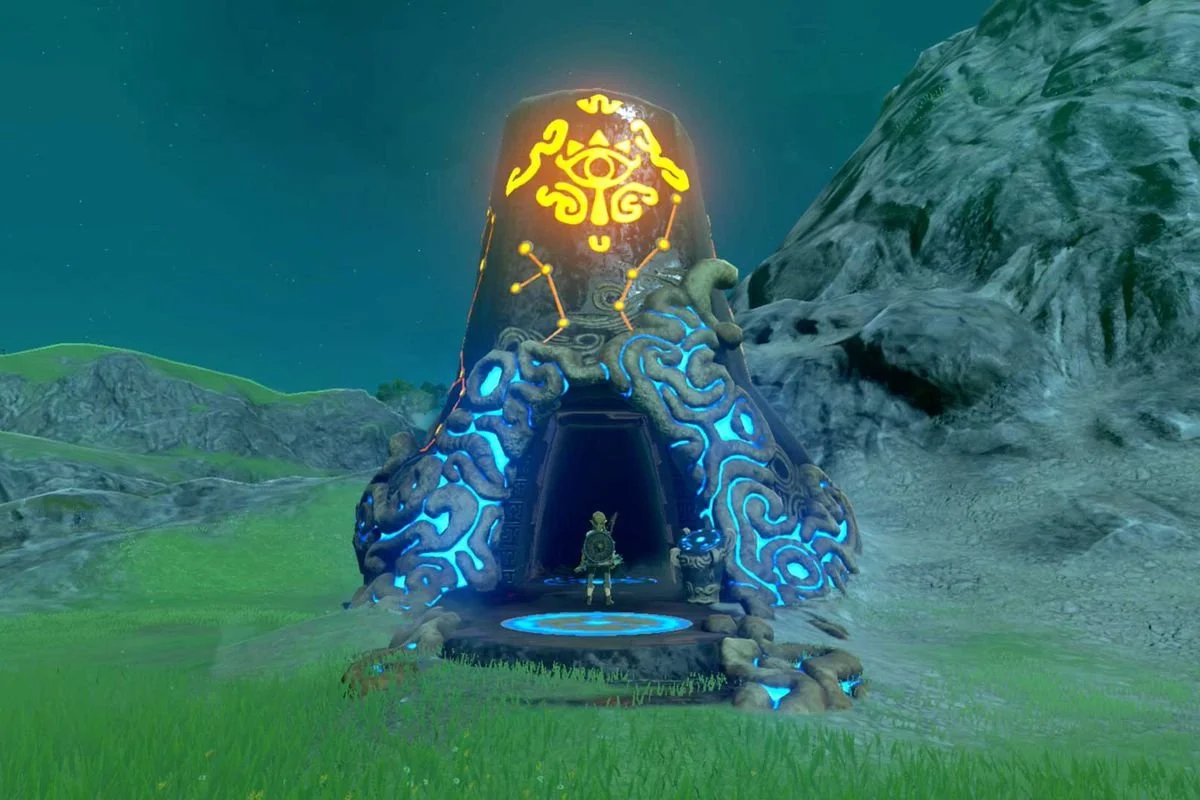Why Skyrim? And What Makes Its World So Special?
I was 13 when Skyrim came out, I am now 27. As I write this, it has 28 thousand people playing on Steam. So many years later, I still haven’t played anything quite like it. It has a special magic that no other game has captured in quite the same way. And no, it isn’t nostalgia, at least not completely. But the question is, why? Why are people so completely enthralled by this game?
Well, last night I watched a video that sought to answer that question, and felt that, while it made some interesting points about things I hadn’t considered before, I only partially agreed with it. A good portion of the video focused on how the game hit the right audience at the right time, rather than focusing on what actually made the game so loved for so long.
That’s not a total knock—the video was made by someone who is ultimately not a fan of Skyrim. As a very avid fan of Skyrim, I wanted to add another perspective. It may be one tainted by love and nostalgia, but I think it’s one worth sharing.
“[It’s] less about playing through the game and more about playing in it.”
My favorite line from the video, and I think it's best point, was this: “[It’s] less about playing through the game and more about playing in it.” That’s completely true. I think 95% of Skyrim lovers would tell you the same thing. It isn’t so much about the game mechanics of Skyrim; it’s about the world of Skyrim. But is that enough? Is simply saying that Skyrim’s world is incredible sufficient? I don’t think so. So, I want to delve into why its world is so special, at least in my eyes.
So, let’s discuss its four main elements: Wonder, Ambience, Coziness, and Discovery—WAC’D, if you like acronyms.
Wonder
Wonder is often the most overlooked aspect of world-building, not only in games but beyond. It’s the joy or excitement of your inner child. It’s seeing a mountain and being able to climb it; it’s finding a hidden canyon with the last of the snow elves living within; it’s walking into the cavern of Blackreach for the first time (a tactic Elden Ring borrowed years later). It’s being able to converse with rulers, join a college of mages, or become a master assassin. You can even interact with gods and earn their weapons. These desires are rooted in the DNA of myth since The Odyssey, and myth is at the core of wonder. Tall tales of heroes past are what we have loved for centuries and continue to love now. Skyrim, from top to bottom, doesn’t take itself too seriously. Instead, it fully embraces the unbridled joy of fantasy in every sense of the word. You’re the hero, and you can be whatever kind of hero you want to be. You might be thinking: that’s just player freedom, which, yeah, it is, I think that’s a big part of the wonder “equation”. Of course, this means sacrificing strong linear storytelling, but that’s okay—it’s not that kind of game. If it feels like I’m being vague, it’s because wonder is an intangible thing based on feel. It’s why people still love Harry Potter, despite a million other clones “just” like it. Perhaps one day, I’ll write an entire post about wonder, but for now, I’ll leave it there.
“These desires are rooted in the DNA of myth since The Odyssey, and myth is at the core of wonder.”
Ambience or “Vibes”
Look no further than this YouTube series if you’re wondering the kind of effect the handcrafted aspect has.
Jeremy Soule should receive a lifetime achievement award for his work on this game alone. The impact of the score cannot be understated. It evokes a sense of adventure in a calm way that many other games struggle to achieve. It has a melodic sweetness that makes you recall a place you’ve never been. Coupled with Skyrim’s vistas, it creates a magic that’s hard to describe. The art style and focus on wilderness also contribute to this feeling. Each NPC being someone you can talk to makes it feel much less simulated and much more hand-crafted, as does being to enter every building. There's no sleight of hand in the way its towns are built or populated. Even the inns genuinely feel like breaks from the wilderness—places you want to visit. The more I think about it, the more important the “hand-crafted” feel is. Every quest feels thoughtful and collaborative, rather than something churned out by a conveyor belt of different departments. For more on the games quest design, I recommend this recent GDC talk. The ambience is a standout strength of this game, at least until the battle music kicks in because a mudcrab five miles away heard you.
“It has a melodic sweetness that makes you recall a place you’ve never been.”
Coziness
Credit to _itspear for the fun artwork!
Coziness is often overlooked in big-ticket games. They do not allow the player a moment to breathe. For some reason, coziness has been quartered off into its own genre. Because of that, action games and large-scale RPGs often forget about its importance. They ask you to keep going, to check off things on your list, to fight, to run, to profit. They are so occupied with keeping your attention that they forget to just let you wander, to create the moments in between. Where you can enjoy just running around Whiterun, talk to an innkeeper about jobs, or even get your own player home to live in—one that you actually want to decorate. It’s the little things like this that make a game memorable, that make it feel like home.
Discovery
Right now, there is a fairly popular take among those who think of themselves as having finer taste in terms of the games they play: that fast travel shouldn’t exist. I think that’s an unrealistic change, and with the bloat of games, I don’t want to walk across them anyway. Some people only have a few hours to play every day, and expecting them to trek across an open world is a little absurd. And yet, the one exception I would make for this is Skyrim, at least for the first 10-20 hours. You can find some developer interviews about this, but Skyrim’s open world is the perfect balance of “stuff,” meaning it has the ideal gaps between empty space and “discovery moments.” A cave there, a secluded hut with a hint of a story inside, a town where it certainly seems like there’s more than meets the eye. And Skyrim does an excellent job of not “handing you these moments.” Instead, it invites the player to find them for themselves, with a hint of a dirt path climbing upwards, an old ruin you can see from the distance, a far away marker on your minimap, an inconspicuous inn.
The game does not signal these ideas to you in a language that is as obvious as some others; it does not demand you go there. And, often enough, you will find suitable rewards for your exploration, as Skyrim's flexible buildcrafting doesn’t require every item to be a perfect fit for your playstyle. The game invites you to meander but doesn’t force your hand in any way only rewarding you when you do. While often, in other games, this can feel like suffocation by vagueness, Skyrim offers just enough 1-hour mini story hooks and mysteries to keep you engaged. It’s like the bits of cookie dough inside the ice cream—a pleasant pocket of discovery.
And that’s it—those three elements create a world that is both warm and welcoming while also remaining wild and exciting. But there’s something else I want to talk about.
Not everything has to be perfect. In fact, maybe it’s better if it isn’t.
The advantages of imperfection. Skyrim, as many have pointed out, is not a perfect game. Its combat is meh; it’s fairly imbalanced; the cities aren’t Densely-populated; the level scaling can sometimes be annoying, and its writing, while it has some bright spots, isn’t at the level of many of its peers 10+ years later. Please hire dedicated writers, Bethesda—preferably me. But I think if all of those are improved substantially, the world, that feeling of being in Skyrim, would lose something. Every band’s gotta have a lead singer, and for Skyrim, that’s its world. Making the story more compelling and urgent would pull the player away from it. Improving the combat (which modders have done) would completely alter the flow state. Removing level scaling would disincentivize exploration. And, populating the cities would mean a lot of that hand-made feel,, would disappear. Unintentionally or not, Skyrim makes a lot of sacrifices to ensure its world shines as brightly as it can. I don’t think Skyrim succeeds in spite of its flaws, but often because of them.
“Every band’s gotta have a lead singer, and for Skyrim, that’s its world.”





